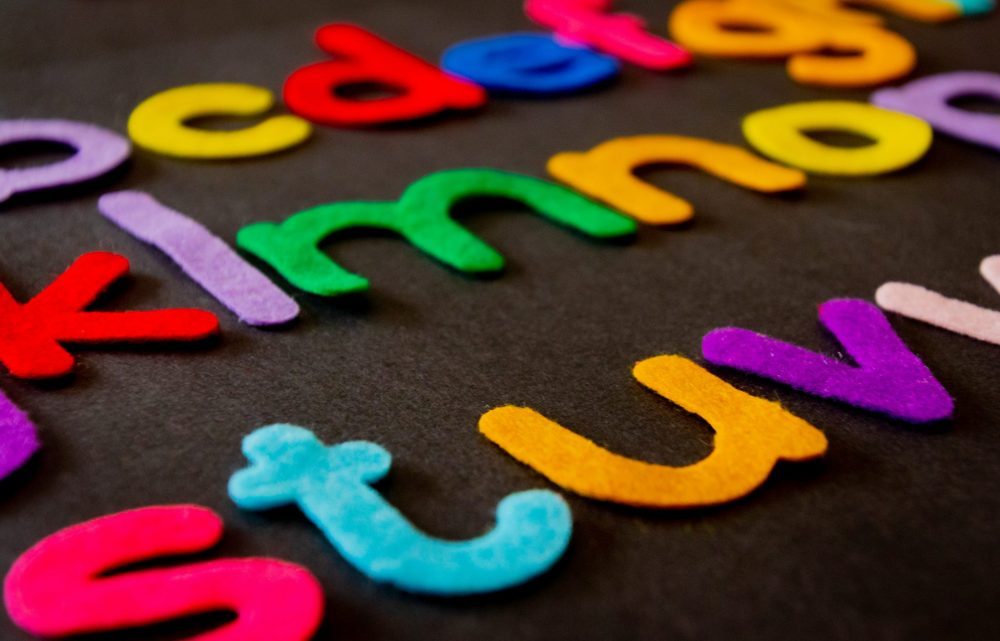Speech therapy helps children who have difficulty pronouncing and communicating words, so check out these Facts about Speech Therapy for Kids! Speech therapy also helps children who may have difficulty in swallowing, articulation, difficulty socializing, and auditory setbacks.
This post may contain affiliate links which means we receive a small commission at no cost to you when you make a purchase. As an Amazon Associate I earn from qualifying purchases.
Facts about Speech Therapy for Kids
A child that works with a speech pathologist will benefit from the experience.
Some of the most frequently mentioned benefits include:
Who does Speech Therapy for Kids?
This type of therapy is normally done by a speech-language pathologist or a certified speech therapist.
You may find resources at the schools near you because many schools have trained speech therapists on staff.
You may also go to your pediatrician and obtain a list of speech pathologists in your area who work with children.
Signs that a child might need some speech help:
There are a large number of children who see speech and articulation pathologists. According to the National Institute on Deafness and Other Communication Disorders, 7.7% of children between the ages of three and seventeen have some type of disorder related to speech, language, or voice.
That equates to about 1 out of every 12 children in the United States.
Common signs that a child may need speech therapy
By the time they are 15 months old they are only making a few sounds or The child of 18 to 24 months points and grunts rather than vocalizing their wants.
Children of about 2 who are leaving off word endings. They may say “Si-Dow” instead of completing the words. By the time the child is about three they are not putting together two and three-word combinations.
They have a vocabulary of fewer than 50 words by the time they are three. They repeat words and sounds. They are unable to talk by the time they are 2. They often leave words out of a sentence.
Their speech is unintelligible by the time they are 3. The child repeats the first sound of a word like they are stuttering.
They have a cleft palate at birth. They have feeding disorders. They have hearing difficulties.
They have developmental delays. They have voice disorders. They do not seem to be able to communicate clearly with you.
How to choose the right speech therapist for kids
The right therapist is one that is certified in speech and language pathology and disorders. It is highly recommended that you speak to your pediatrician about local therapy providers they trust for their patients.
You will have options of private practice therapy, in-home therapy visits, and in-school therapy.
Prioritize speech therapists who emphasize the use of speech and language activities for kids speech and language activities that reinforce learning and enhance communication skills naturally. By choosing professionals who focus on these interactive activities, you ensure a holistic approach to speech therapy that promotes continuous improvement and effective communication for your child.
You need to decide what type of therapy visits fits best into your schedule and how many weekly visits the child will need.
When you are choosing a specialist go visit them and see how they interact with the child and talk to them about how they work, the methods they use, and the schedules they work on.
You do not have to use one person just because they are recommended by your physician. You have a right to interview and choose who will work with your child.
Check with the provider to see if they accept your insurance coverage or if they are private pay only.
The selection process is a big deal because you want to use the best possible person for your child’s needs.
What is the best age to begin this type of therapy?
The earlier that your child gets help with their speech the better. As soon as you, or your doctor, notices a delay then get started with speech therapy and training.
If the child has not started school yet then the therapy could keep them from having learning delays or socialization problems when they start school.
When a language pathologist works with a toddler, they are working to achieve set goals.
They will strive to help the toddler:
- Increase their vocabulary
- Be able to follow simple directions
- Learn to pay attention and listen when the pathologist is speaking to them so they can learn to pay attention when their parents and one day their teachers are speaking to them.
- Learn to put words together to form sentences.
- Learn playing skills.
- Learn to articulate sounds correctly.
The educator or pathologist will involve you in your child’s treatment and progress. They will show you the things you can do with your child to support and strengthen what they have learned.
Most therapy with a toddler is taught while playing games. Toddlers have short attention spans. That is another reason why your participation is so critical.
You are with your child more than anyone else. If you play the games with them once or twice a day while they are at home, then when they go to their next appointment, they will have not forgotten what the pathologist taught them and will be ready to move along and learn something new.
It takes a village to raise a child. It takes a group effort between educator, parent, therapist, and doctor to help a child who is having any problems overcome their problem.
Stay Calm and Be Patient
Your child is not going to magically improve the first time they see a therapist for speech. It is going to take several sessions and a lot of work.
Be patient and stay calm when working with the child. If you find yourself losing your calm stop the learning process and start again when you are calm and relaxed.
Facts about Speech Therapy for Kids
If your child is having any trouble communicating then you want to do everything you can to help them. It can be hard for parents to determine if their child needs therapy or if they will learn how to speak more clearly as they get older.
If you have any doubts or concerns ask your pediatrician to evaluate your child and help you decide which course of action will be best.























Leave a Reply